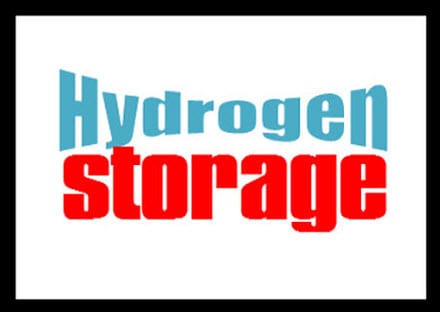
Hydrogen storage and the search for new materials
September 21, 2012 0 By Stephen VagusHydrogen storage continues to be a significant problem
In the world of hydrogen fuel, storage is a major problem. Hydrogen is abundant and, despite some problems concerning production, readily available for use. Storing unused or surplus hydrogen fuel, however, has proven to be a difficult and expensive task. This is due to the fact that hydrogen, in its various forms, must be stored in a very particular manner. As a liquid, it must be stored at high pressures and low temperatures. This is also true with gaseous hydrogen. Solid hydrogen is somewhat easier to manage, but the process of converting hydrogen into a solid state and then storing the fuel in a way that it can be easily accessed is exceedingly complicated.
Dissertation examines materials used in hydrogen storage
Serhiy Luzan of the Umea University in Sweden has chosen the issue of hydrogen storage for his doctoral dissertation. In his dissertation, Luzan examines the various materials that can be used in hydrogen storage and shows how synthesized materials may hold some promise. The dissertation suggests that carbon nanocomposite materials may be able to lead to efficient and affordable hydrogen storage.

Metal-organic materials could hold the key to efficiency
Nanotechnology has become subject of great interest in the world of hydrogen fuel. This is primarily due to technology’s apparent abilities to solve the problems that surround the use of hydrogen. Carbon nanotubes, in particular, show a great deal of promise in hydrogen storage because of their structure. Luzan suggests that structure is very important for the successful storage of hydrogen fuel and claims that metal-organic frameworks could lead to a new era of hydrogen storage.
Dissertation presents research on hydrogen storage materials
According to Luzan’s dissertation, metal-organic frameworks comprised of zinc and cobalt-based metal clusters could absorb vast amounts of hydrogen fuel. Luzan notes that many new metal-organic materials are produced every year, which could be promising news for hydrogen storage. Luzan himself has studied various materials used in hydrogen storage. This research is outlined in his dissertation, called “Materials for Hydrogen Storage and Synthesis of New Materials by Hydrogenation.”



 With over 15 years of reporting hydrogen news, we are your premier source for the latest updates and insights in hydrogen and renewable energy.
With over 15 years of reporting hydrogen news, we are your premier source for the latest updates and insights in hydrogen and renewable energy.